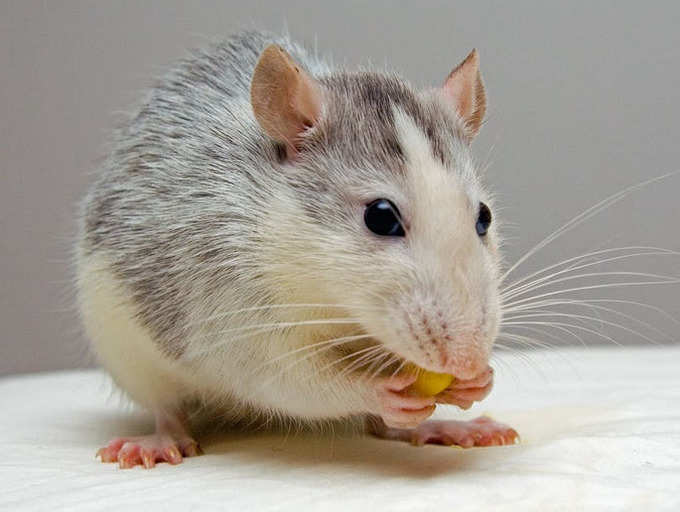

Effective Pest Control for Rats: A Comprehensive Guide to Rodent Control and Extermination Rats, mice, and other rodents are among the most common and destructive pests in homes and businesses. Their ability to breed rapidly, gnaw through structures, and spread diseases makes rat control pest control a critical priority. Whether you’re dealing with a minor infestation or a full-blown invasion, understanding the best practices for pest control for rats and rodent control can save you time, money, and stress. This guide covers everything you need to know about rodent exterminator services, DIY methods, and long-term prevention strategies. Why Rat Control and Pest Control is Essential Rats and mice are more than just nuisances—they pose serious risks to health and property. Rodent pest control is vital because: Disease Transmission: Rodents carry pathogens like salmonella, hantavirus, and leptospirosis. Property Damage: Rats gnaw on wires, insulation, and wood, increasing fire hazards and repair costs. Food Contamination: They invade pantries, contaminating food supplies. Rapid Infestations: A single pair of rats can produce dozens of offspring in months. Ignoring rodent control can lead to costly consequences. Professional rodent exterminator services are often necessary to tackle severe infestations. Understanding Rodent Control and Extermination Methods Effective rodent pest control combines prevention, trapping, and extermination. Here’s a breakdown of proven strategies: 1. Inspection and Identification Before implementing rat and pest control measures, identify the species (e.g., Norway rats, roof rats, house mice). Look for droppings, gnaw marks, nests, and grease trails. 2. Exclusion Techniques Seal entry points like cracks, vents, and gaps around pipes. Use steel wool or metal mesh, as rodents can’t chew through these materials. This step is foundational for long-term rodent control. 3. Traps and Baits Snap Traps: Ideal for targeting specific mice or rat populations. Live Traps: Humane options for releasing rodents outdoors. Bait Stations: Use rodenticides carefully, especially around pets and children. 4. Professional Rodent Exterminator Services For persistent infestations, hire a licensed rodent exterminator. They use advanced tools like thermal imaging, tamper-resistant bait stations, and eco-friendly treatments. Signs You Need Pest Control for Rats Early detection is key to minimizing damage. Watch for these red flags: Droppings: Small, dark pellets near food sources. Scratching Noises: Sounds in walls or attics at night. Nesting Materials: Shredded paper, fabric, or insulation. Odors: A musky smell from urine or nesting sites. If you notice these signs, act quickly to implement rat control pest control measures or contact a rodent pest control expert. Health Risks of Delaying Rodent Control Postponing pest control for rats can lead to: Allergies and Asthma: Rodent dander and droppings trigger respiratory issues. Rat-Bite Fever: Transmitted through scratches or bites. Parasites: Fleas and mites hosted by rodents can infest homes. Investing in timely rodent exterminator services protects your family’s health. DIY vs. Professional Rodent Pest Control While DIY methods work for small infestations, larger problems require expertise. Here’s a comparison: DIY Rat and Pest Control Pros: Cost-effective for minor issues. Use store-bought traps or natural repellents like peppermint oil. Cons: Limited effectiveness for severe infestations. Misusing rodenticides risks poisoning non-target animals. Professional Rodent Exterminator Services Pros: Comprehensive solutions, guaranteed results, and follow-up inspections. Cons: Higher upfront cost. For recurring issues, partnering with a rodent pest control company ensures lasting results. Preventing Future Infestations After addressing an active infestation, focus on prevention: Sanitation: Store food in airtight containers and dispose of garbage regularly. Landscaping: Trim bushes and trees away from buildings to eliminate rodent highways. Monitoring: Use motion-activated cameras or traps to detect early signs of mice, mouse, or rat activity. Choosing the Right Rodent Exterminator Not all pest control companies are equal. When selecting a rodent exterminator, consider: Licensing and Certifications: Ensure they meet state regulations. Experience: Look for specialists in rodent control. Eco-Friendly Options: Ask about pet-safe or organic treatments. Warranties: Opt for services offering follow-up visits. Common Myths About Rodent Control Debunking misconceptions improves your rat and pest control strategy: Myth 1: “Cats alone can solve rat problems.” Reality: Cats deter rodents but won’t eliminate large infestations. Myth 2: “Cheese is the best bait.” Reality: Rats prefer peanut butter, nuts, or dried fruit. Myth 3: “Rodents only infest dirty homes.” Reality: Rodents invade clean spaces for shelter and water. The Role of Technology in Modern Rodent Pest Control Innovations like smart traps, ultrasonic repellents, and AI-powered monitoring systems are revolutionizing rodent control. These tools allow for proactive, non-toxic solutions, reducing reliance on chemicals. Conclusion From pest control for rats to rodent exterminator services, addressing rodent issues requires a multifaceted approach. By combining prevention, timely action, and professional expertise, you can safeguard your property and health. Whether you’re tackling a mouse, rat, or broader rodent problem, this guide equips you with the knowledge to act decisively. Don’t wait—invest in effective rodent pest control today and enjoy a rodent-free tomorrow.